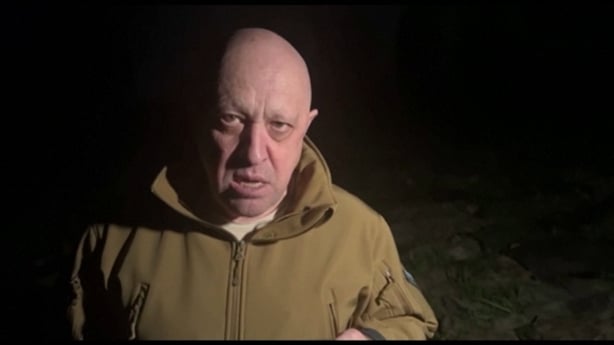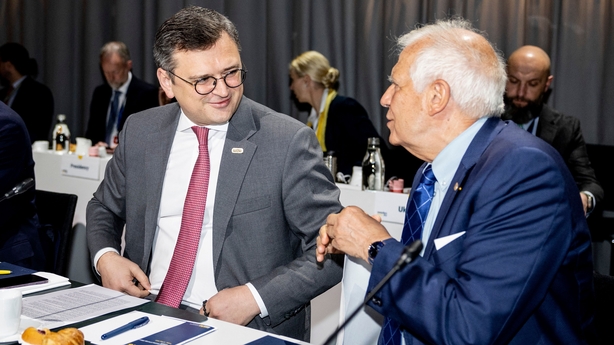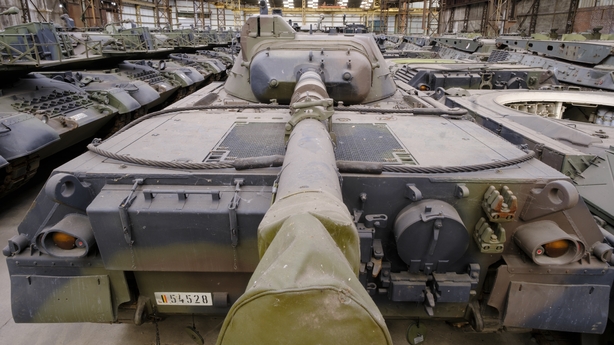Ukrainian troops are advancing in two directions in the eastern city of Bakhmut, but the situation in the city centre is more complicated, deputy defence minister Hanna Malyar has said.
Ukrainian and Russian officials both say pro-Kyiv forces have started to push back in and around Bakhmut after blunting a months-long offensive by troops loyal to Moscow that left much of the city in ruins.
Russia acknowledged yesterday that its forces had fallen back north of Bakhmut ahead of a long-promised counter offensive by Ukraine to retake more territory it lost after the start of the war last year.
"Our troops are gradually advancing in two directions in the suburbs of Bakhmut ... however, the situation in the city itself is more complicated," Ms Malyar wrote on Telegram.
"Thanks to the competent planning of the command and the courage of our fighters, the enemy is not able to take the city under its control."
Much of the fighting is Bakhmut is being led by the Wagner group of mercenaries. In a Telegram post, founder Yevgeny Prigozhin said his men had advanced up to 550 metres in some directions on and said Ukrainian forces controlled less than 1.78 sq km of the centre.
Mr Prigozhin is embroiled in a public relations war with the defence ministry in Moscow over what he says is its refusal to provide enough ammunition.
A Wagner employee tried to deliver a personal letter from Mr Prigozhin to Defence Minister Sergei Shoigu today, but did not succeed, the Wagner press service said in a separate Telegram post.
The letter dealt with what Mr Prigozhin says is the poor performance by regular troops on Wagner's flanks.
Ukrainian President Volodymyr Zelensky, in Rome for an official visit, did not respond directly when asked when the counter offensive would start.
"I can't answer this question, but you will see the results and Russia will feel them," he told Italian television.

Long-range weapons
EU foreign policy chief Josep Borrell has called for European nations to provide long-range weapons for Ukraine to help it counter Russian strikes, while accelerating arms deliveries overall.
"The Russians are bombing from far away so the Ukrainians have to have the capacity to reach... the same distance, the same range," Mr Borrell said after a meeting with Ukraine's Foreign Minister Dmytro Kuleba in Stockholm.

"But we have to speed up," he said, as Germany announced a new weapons package for Ukraine worth €2.7 billion, including tanks, armoured vehicles and air-defence systems.
"I welcome the German effort and invite all member states to follow this example," Mr Borrell said.
On Thursday, Britain said it would send its Storm Shadow missiles to Ukraine, becoming the first country to provide longer-range weapons to Kyiv.
Mr Zelensky has been urging Western allies to provide more advanced weapons ahead of a widely expected counter-offensive against Russian troops in eastern Ukraine.
"Instead of asking when will the counter-offensive begin, ask, have I done enough for the Ukrainian counter-offensive to begin and be successful?" Mr Kuleba said at the press conference with Mr Borrell.
"The main topics of my conversation with EU foreign ministers today will be a long-range artillery ammunition and short-range accession talks" to join the EU, Mr Kuleba said.
Mr Zelensky is seeking to accelerate the process for formal talks on EU membership for Ukraine in the wake of Russia's invasion, launched in February 2022.
Meanwhile, Moscow has said that Kyiv used British long-range missiles to target civilian sites in the eastern city of Luhansk, wounding six children.
The defence ministry said that Ukraine's armed forces had struck two civilian enterprises yesterday evening.
"Storm Shadow air-to-air missiles supplied to the Kyiv regime by Great Britain were used for the strike, despite London's declarations that these weapons would not be used against civilian targets", the ministry said in a statement.
"Nearby residential buildings were damaged. Civilians were injured, including six children," the statement added.
The ministry said a Sukhoi Su-24 jet that carried the missiles and a MiG-29 aircraft had been shot down.
By announcing it would deliver the air-launched deep-strike weapon, Britain became the first country to provide longer-range armament to Kyiv. Russia branded the move an "extremely hostile step".
Read more on the conflict in Ukraine
Germany unveils €2.7bn military package to Ukraine
Germany has announced €2.7 billion of military aid to Ukraine, its biggest such package yet since Russia's invasion, and pledged further support for Kyiv for as long as necessary.
The package will include 30 Leopard 1 tanks, 15 Gepard anti-aircraft tanks, over 200 reconnaissance drones and four Iris-T anti-aircraft systems, according to a defence ministry statement.
"We all wish for a speedy end to this terrible and illegal war.... Unfortunately, this is not yet foreseeable. Therefore, Germany will provide any help it can - as long as it takes," German Defence Minister Boris Pistorius said.
Ukraine said that the massive new weapons package was another sign that Russia would lose in its war against Ukraine.
"States declare large defence aid packages for Ukraine," said Mykhailo Podolyak, an adviser to Mr Zelensky.
He said that the aid indicated that Russia was "bound to lose and sit on the bench of historical shame."

Ukraine has pressed its allies for long-range weapons, jets and ammunition before a counteroffensive expected in coming weeks or months. The latest German package also included 18 howitzers.
Germany was initially reluctant to provide heavy arms to Ukraine to help it counter Russia's invasion, fearing it might escalate the fight.
However in January Berlin agreed to send Leopard tanks and said it would work with allies to send more.

